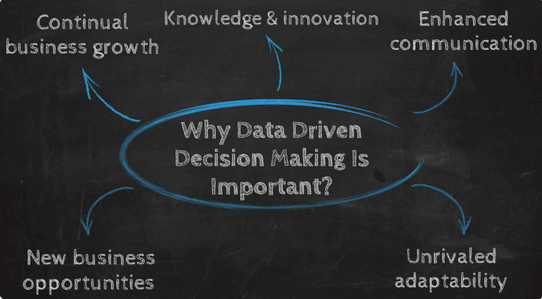Data analytics has a profound impact on strategic decision-making across various industries. As organizations increasingly generate and collect vast amounts of data, leveraging analytics tools and techniques allows them to derive meaningful insights. These insights, in turn, inform and enhance the strategic decision-making process. Here are key ways in which data analytics influences strategic decision-making:

Informed Decision-Making:
Data analytics provides decision-makers with relevant and timely information. By analyzing historical and real-time data, organizations gain insights into market trends, customer behaviors, and internal operations, empowering leaders to make more informed and data-driven decisions.
Predictive Analytics for Forecasting:
Predictive analytics utilizes historical data and statistical algorithms to forecast future trends and outcomes. Organizations can use predictive analytics to anticipate market changes, customer preferences, and potential risks, enabling proactive and strategic decision-making.
Customer Segmentation and Personalization:
Data analytics allows organizations to segment their customer base based on various criteria. Understanding customer segments helps in tailoring products, services, and marketing strategies to specific target audiences, enhancing customer engagement and satisfaction.
Risk Management:
Data analytics helps organizations identify and mitigate risks. By analyzing historical data and identifying patterns, businesses can anticipate potential risks and develop risk management strategies. This proactive approach enables more effective decision-making in risk-prone situations.
Operational Efficiency and Cost Optimization:
Analyzing operational data can identify areas for efficiency improvement and cost optimization. From supply chain management to resource allocation, data analytics provides insights that help organizations streamline processes and reduce operational costs.
Market and Competitive Analysis:
Organizations use data analytics to analyze market trends, monitor competitor activities, and identify opportunities for growth. By understanding the competitive landscape, businesses can make strategic decisions that position them advantageously in the market.
Performance Measurement and KPI Tracking:
Key Performance Indicators (KPIs) are essential metrics for assessing organizational performance. Data analytics enables the tracking and analysis of KPIs, providing insights into the effectiveness of strategies and facilitating adjustments to meet business goals.
Supply Chain Optimization:
In supply chain management, data analytics helps optimize inventory levels, predict demand, and enhance overall supply chain efficiency. Strategic decision-makers can use these insights to improve supply chain resilience and responsiveness.
Strategic Marketing and Campaign Optimization:
Data analytics plays a pivotal role in marketing strategies. Organizations can analyze customer behavior, preferences, and engagement patterns to optimize marketing campaigns. This data-driven approach ensures that marketing efforts are targeted, relevant, and yield maximum impact.
Human Resource Management:
Data analytics in HR helps organizations in talent acquisition, employee engagement, and workforce planning. Understanding employee performance metrics, turnover rates, and other HR analytics enables strategic decision-making in talent management and organizational development.
Real-Time Decision-Making:
Advanced analytics and real-time data processing enable organizations to make decisions in near real-time. This is particularly crucial in dynamic environments where quick responses to changing conditions can provide a competitive advantage.
Strategic Planning and Goal Setting:
Data analytics assists in setting realistic and achievable strategic goals. By analyzing historical performance data and market trends, organizations can align their strategic planning with achievable objectives, ensuring a more focused and effective approach.
In summary, data analytics empowers organizations to make more informed, evidence-based strategic decisions. The ability to extract valuable insights from data enhances competitiveness, improves operational efficiency, and enables organizations to navigate an ever-evolving business landscape with agility and precision. Integrating data analytics into strategic decision-making processes is increasingly becoming a fundamental aspect of successful business management.
